A Guide to Self Study Calculus
Estimated Read Time: 4 minute(s)
Common Topics: book, calculus, topics, study, multivariable
Click For Complete Series
We often get questions here from people self-studying mathematics. One of those questions is what mathematics should I study and in what order. So to answer those questions, I have decided to make a list of topics a mathematician should ideally know and what prerequisites the topics have.
Table of Contents
Calculus
After high school stuff comes calculus. This includes:
- Differentiation
Differentiation is finding the tangent line to a specific function. You can deduce surprisingly many facts from this procedure.
Prerequisites: Basic stuff
Important topics:
a) Continuity
b) Limits
c) Derivatives
d) Rules for differentiation
e) Mean value theorem and consequences
f) Geometrical meaning of derivatives
g) Curve sketching
h) Rate of change - Integration
Integration is the opposite process of differentiation. Integration is used to find areas, lengths, and so much more.
Prerequisites: Differentiation
Important topics:
a) Indefinite integrals
b) Rules of indefinite integration
c) Definite integration
d) Rules for definite integration
e) Fundamental theorem of calculus
f) Application of integration to find areas, volumes, and lengths
g) Applications to Physics - Sequences and series
Sequences and series are important for approximating certain functions. For example, the sine and the logarithm functions can be approximated very nicely with series.
Prerequisites: Differentiation and integration
Important topics:
a) Convergence of sequences
b) Converges of series
c) Special sequences and series
d) Convergence tests for series
e) Taylor series
f) Integration and differentiation with series - Multivariable calculus
Everything in single variable calculus of course also works in multiple dimensions. Prerequisites: single-variable calculus
Important topics:
a) Basic spatial geometry, like parametrization of lines and curves
b) Limits and continuity in multivariable functions
c) Differentiation of multivariable functions
d) Integration of multivariable functions
e) Multivariable Taylor series
f) Gradients and tangent planes
g) Maximization problems including Lagrange multipliers
h) Different coordinate systems
i) Vector calculus
My book recommendations for calculus:
The best calculus book is undoubted:
Elementary Calculus – An infinitesimal approach by Keisler
Freely available here: https://www.math.wisc.edu/~keisler/calc.html
This book takes you from elementary calculus to the standard topics in multivariable calculus. It even does this in two approaches, namely the standard and the nonstandard approach.
The nonstandard approach came first historically and involves infinitesimal numbers. Numbers are so small that they’re not real numbers anymore. The tools of infinitesimals were used by many great mathematicians such as Euler and Gauss. Lately, they have fallen into disuse because mathematicians only want to work with real numbers (the standard approach). Nevertheless, mathematician Robinson has shown infinitesimals to be completely rigorous, and they are still used in physics and engineering (and they provide intuition in pure mathematics). So it is very beneficial to learn the nonstandard approach. While everybody thinks this book is valuable, many find it dangerous to teach the nonstandard approach only. This criticism is unfounded because the book treats both approaches. So you’ll be perfectly able to read a standard calculus/analysis book after Keisler.
This book covers:
- Limits
- Differentiation
- Integration
- Series
- Vectors
- Partial Differentiation
- Multiple Integrals
- Vector Calculus
- Some differential equations
If you’re familiar with basic high-school math, you will have no problems with this book. Many concepts like logarithms and trigonometric functions are even revised along the way. That said, a familiarity with proofs is recommended.
Now you may try to understand calculus in a somewhat more rigorous way. I recommend:
Calculus Deconstructed: A Second Course in First-Year Calculus by Nitecki
This does the entire calculus from a rigorous point of view. The theory is constructed the right way, and the exercises are very interesting. Especially the historical topics are very interesting.
This book covers:
- Sequences and their limits
- Continuity
- Differentiation
- Integration
- Power series
You can read this book if you already have read a book like Keisler.
After seeing single-variable calculus more rigorously, you might want to like to see multivariable calculus. This is not strictly necessary, but it might help. One of the best books covering rigorous multivariable calculus is “Calculus on manifolds” by Spivak, but this is a very brief book and counts more as an analysis. So I will suggest a more readable resource, again by Nitecki:
Calculus in 3D: Geometry, vectors and multivariate calculus by Nitecki
Freely available here: http://www.tufts.edu/~znitecki/Hardcore2.pdf
If you enjoyed my previous recommendation of Nitecki, you will enjoy this too since this book is even better. It takes you from the very beginning of multivariable calculus to very far. For example, the very end of the book will discuss forms which are a very useful modern tool.
Everything is rigorously proved (but it’s not as harsh as an analysis book), although some proofs are put in an appendix.
This book covers:
- Coordinates and vectors (= baby linear algebra)
- Curves in space
- Differentiation of real-values functions
- Integration of real-valued functions
- Vector fields and forms
Read this book if you already know some rigorous single-variable calculus.
Finally, you may want to learn some differential equations:
Differential Equations by Ross
This is a marvelous book. It covers the main techniques of solving differential equations, but also quite some theoretical stuff. This book is truly a joy to read for a subject that is usually not so fun.
The book covers:
- Analytic solutions of first-order and higher-order ODEs
- Series solutions
- Systems of linear ODEs
- Approximate Methods for ODEs
- Laplace Transform
- Existence and Uniqueness
- Sturm-Liouville theory and Fourier series
- Nonlinear differential equations
- Partial differential equations
You can read this book after the first encounter with single-variable calculus, but you’ll need some more for some topics.
Advanced education and experience with mathematics

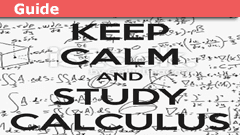
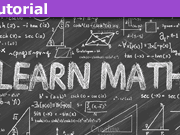
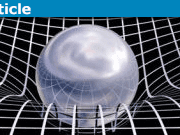

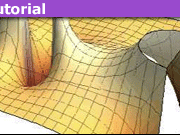
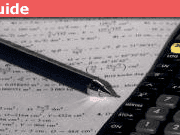
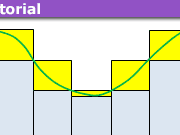
Leave a Reply
Want to join the discussion?Feel free to contribute!